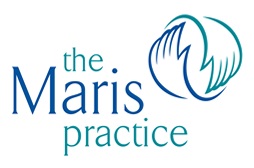Lets talk about aromatherapy and essential oils. These have got a bad rap over recent years due to some unrealistic claims that have been made surrounding them. However, essential oils can help tremendously with a variety of chronic issues including anxiety, depression and migraines. Aromatherapy is the use of distilled plant oils in baths, inhalations, massage etc to treat mental and physical conditions.
Aromatherapy has an extensive history having been used for thousands of years. Ancient cultures in China, India, Egypt, and elsewhere incorporated aromatic plant components in resins, balms and oils. These natural substances were used for both medical and religious purposes.
The oils are therapeutic; this is a process and an investment. The active chemicals within essential oils are well studied and the effects well documented. The chemical make-up gives them many antibiotic, antiseptic, analgesic, anti-inflammatory and antiviral properties. This is common knowledge in Europe where essential oils are frequently used in hospitals and clinical settings. For example, Eugenol, the major active chemical in clove oil, is widely used for dental pain.
Here a few ways in which aromatherapy can help you.
Reducing Stress:
Stress relief is one of the most widely recognised uses of aromatherapy. Calming scents like lavender, peppermint and bergamot are used as relaxants to relieve anxiety and soothe the mind.
Relieving pain:
From migraines to muscular cramps, aromatherapy can be an effective alternative to painkillers. Anti-inflammatory essential oils like chamomile, sweet marjoram, eucalyptus or peppermint are able to penetrate cells quickly, improving circulation and providing oxygen to inflamed joints.
Boosting memory:
Ever smelled something familiar and found yourself transported back to a specific time? Scents are a powerful part of our memory and so it makes sense that we can use them to aid and enhance our memories.
Helping your body heal:
By increasing blood flow, reducing inflammation and with their anti-microbial properties, essential oils can be an effective way of speeding up your body’s healing time. Certain oils can also help heal and reduce the discomfort of skin irritations like eczema and psoriasis.
Aiding digestion:
Among their many uses, massaging essential oils like black pepper, ginger, grapefruit and chamomile onto the abdomen can aid digestion, ease bloating, relieve indigestion and speed up the metabolism so food can be digested quicker.
Strengthening the immune system:
With their anti-microbial, anti-fungal and anti-bacterial properties, essential oils can be an effective way of not only treating but preventing illness and infection. Rosemary, eucalyptus, tea tree oil, grapefruit, lemon and cinnamon are all effective, immune system boosting essential oils.
Regulating sleep:
Aromatherapy and the use relaxing scents can be a powerful way of resetting your body clock and developing a healthy sleep pattern. It works by allowing your body to relax and allow itself to become tired at an appropriate time. While lavender is well-known for it’s sleep enhancing properties, jasmine, chamomile, ylang-ylang, rose and sandalwood also have naturally sedative properties.
In pregnancy:
Certain oils can ease the symptoms of morning sickness, soothe pregnancy niggles and help you to feel calm and relaxed during your pregnancy. What is important to know is that not all essential oils are safe for you to use during pregnancy or childbirth. Don’t let that deter you as the benefits will impress you. Consult with a specialist practitioner who will advise you.

